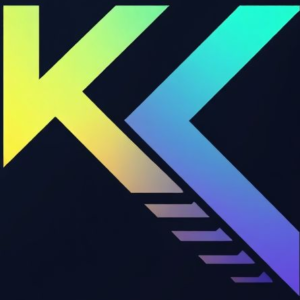

Godot founders had desperately hoped Unity wouldn’t ‘blow up’
The founders of Godot had been anxiously hoping that Unity would avoid triggering a major disruption in the game development world, even though Godot saw a surge of users during Unity’s “Runtime Fee” controversy. Godot’s co-founders, Rémi Verschelde and Juan Linietsky, acknowledged that they foresaw Unity’s challenges long before, as the company pursued aggressive growth strategies, like acquisitions and their IPO push, which added long-term financial burdens. Despite their anticipation, they weren’t entirely prepared for the sudden influx of developers turning to Godot.
Godot, an open-source engine, wasn’t fully equipped for a massive uptick in users until version 4.0 was released in early 2023. Fortunately, when the Unity debacle hit, the new version provided a more robust platform to handle the flood of former Unity developers. However, Godot’s open-source model presents unique challenges—unlike licensed engines, new features must be voted on and implemented by the community rather than being developed on-demand.
Though many new users transitioned smoothly, some missed features from Unity, like the “edit while in Play mode” functionality. While not all requests could be accommodated, the open-source nature of Godot allowed developers to modify the engine for their specific needs, offering flexibility that licensed engines like Unity cannot match. Ultimately, Godot’s founders stressed that their community-driven approach allows for unique growth and adaptation.
As Godot experienced an unexpected surge of new users following the Unity “Runtime Fee” fallout, it faced some challenges in accommodating developers accustomed to Unity’s features and workflow. One of the most requested features, editing while in “Play” mode, remains difficult for the Godot team to implement due to the engine’s structure, which keeps gameplay and editing processes separate for stability. While this feature isn’t likely to appear soon, the community has proposed more manageable alternatives, such as the ability to click on objects during gameplay and view them in the inspector.
Godot’s open-source nature allows developers to modify the engine themselves, which is not an option with closed-source engines like Unity or Unreal. This flexibility has become one of Godot’s standout advantages, enabling users to “fork” the engine and introduce custom features that meet their specific needs.
Despite the technical limitations, the influx of new users has shown patience with Godot’s shortcomings, often discovering unique tools that don’t exist in Unity. This community-driven environment, where developers collaborate and contribute to the engine’s evolution, highlights the strength of open-source values that Godot embodies.
Ultimately, the rise of Godot in the wake of Unity’s controversy underscores how open-source engines can offer developers a flexible, community-led alternative to more rigid, commercial engines. Godot’s founders remain optimistic about the future, emphasizing that, as an open-source project, its development path can be shaped by those who use and contribute to it.
Despite the initial concerns from Godot’s founders about the sudden rise in users, the influx has offered opportunities for the open-source engine to grow and adapt. The key factor in this transition has been the strong sense of collaboration within the Godot community. Veteran developers have been instrumental in helping newcomers, many of whom are former Unity users, understand how to replicate familiar features using Godot’s tools. This peer support structure has lessened the burden on the engine’s core development team and helped smooth the onboarding process for new users.
Godot’s unique open-source structure means that, rather than relying on a central authority to implement new features, the community votes on and develops them collaboratively. This model allows flexibility but also presents challenges, particularly when handling feature requests from Unity developers accustomed to faster, direct updates from commercial engines. Yet, this same model has proven to be an advantage, as developers can “fork” the engine, adapting it to their specific project needs—a capability unavailable in Unity or Unreal.
While some critical features from Unity, like the ability to edit games in “Play” mode, are not yet feasible in Godot, its community has shown patience and a willingness to adjust. The developers who have joined Godot from Unity seem open to working within the limitations of the engine, often discovering new possibilities that weren’t available in Unity.
In the broader scope, this transition has demonstrated how open-source projects like Godot can rapidly scale and evolve, especially when backed by a passionate and resourceful community. For Godot’s leadership, the experience has reinforced the importance of maintaining their vision for the engine—ensuring that Godot stays true to its open-source roots while still offering developers the tools they need to succeed.


